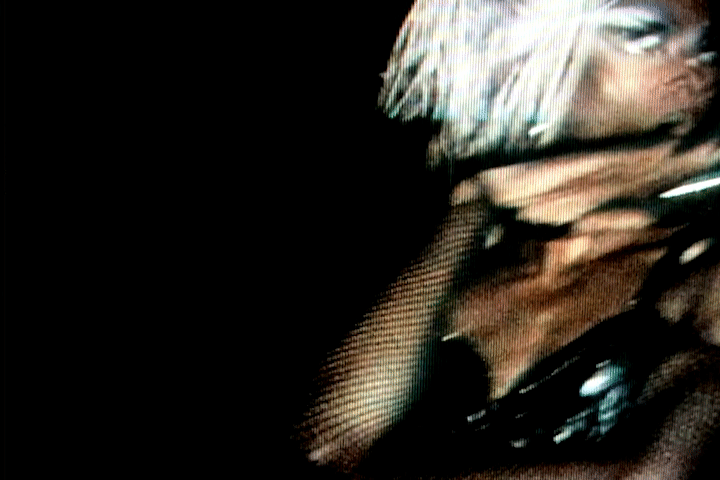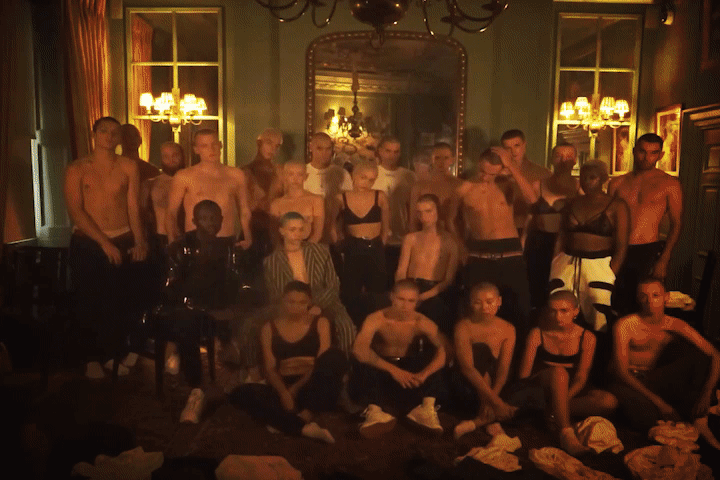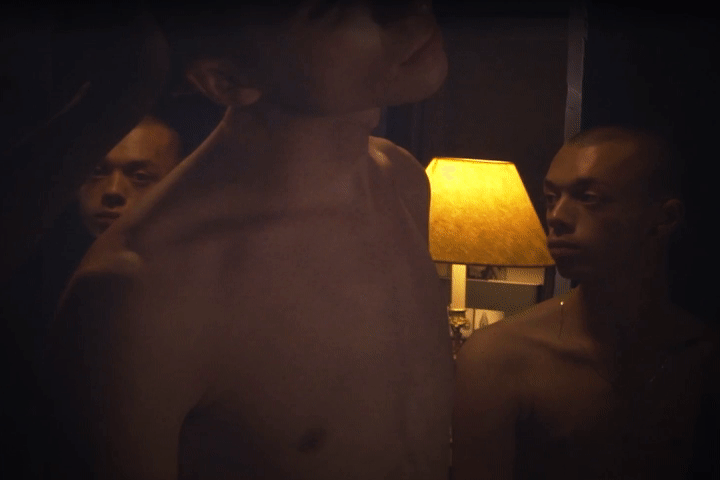Joseph Wilson is a British queer drag performer, an artist and moving image creator, he has been working with and documenting the eclectic East London queer scenes to amplify marginalized voices in LGBTQI+ community. His experimental work “IL-WIDNA” is directed to the theme and is a re-imagination of Section 28 effects.
I got interested in filmmaking through photography. At the university, I saw a film called Tarnation by Jonathan Caouette, and from back then when I watched that film, I felt like, this is what I want to do. Actually it was a very low-budget documentary about his schizophrenic mom and his journey of adulthood and coming to terms with his sexuality, in the film he shares very traumatizing, extremely complex, and difficult relationships. He was able to make the documentary feel beautiful and fascinating and take something so dark and so painful and bring real color and beauty to it. I think that is translated into my work as well, and I think that the film paves the way for my career.
small talk
I feel that there’s always a deep-rooted message within my work, and if we think about why we are here and what’s our purpose in life, I think that I’ve been given this gift and talent as a filmmaker to create my work, which portrays and celebrates narratives for me, which never have been in the mainstream media when I was a child. I grew up through the aftermath Section 28, I didn’t really know what it was until I grew up and educated myself. And a lot of people still don’t know what Section 28 was about. I think as a filmmaker, I can deliver and explore narratives that are often erased from our past. I feel that It’s really important to educate LGBTQ+ and non-LGBTQI+ audiences about what happens to the people of the same community up to date.
I am determined to utilize things around me and the things I have access to. I am very much involved in the LGBTQI+ community here in East London and I know a lot of people from different fields who put so many different talents to create the ultimate, finished piece. For me, this is very important.
I don’t want just to make an informal film about what happened as they do exist, what I like to do is to bring my own aesthetic, my own vision into those really important stories, but also to make them enjoyable and celebratory, considering that a lot of stuff that’s archived is dreary and sad but when you watch IL-WIDNA you feel “wow” as you watch those cool people, rebelling against the heteronormative government, being themselves, the warriors. It’s really important for me, for younger queer people, to watch that and have that sense of hope and inspiration. I think that portrays my work.
TAYCE-MEMORY
I feel that Drag and film for me go hand in hand with each other and complement each other along the way.
Drag is such a powerful tool anyway, back when I started doing it, it was very different from what it is now. I guess I didn’t realize how important it was for me as a filmmaker back then, but now looking back, I understand that it allowed me to break through any kind of wall, that people had, I was filming and documenting, and I was an insider rather than an outsider. There was a sense of trust, we can relate to each other. It’s not me there with a camera as an alien person, it’s me there with my camera filming shared experience. It was a very natural process.
I am progressing and succeeding within my work, but I am also giving back to my community and always using people and paying people from the community and like supporting people and giving the work giving money that I get to other people who need to, you know, it's not all about me.
I was accepted into this community, there was a group, I mean, it's still going, it’s called single pink. And there were so many drag queens and performers back then who would have killed to have been part of this core group. It was an organic process. It wasn't like, “oh, can I be in it? Yes, you're in it” it was more like a certain people kind of came to the forefront, and I’m so lucky and grateful that I was one of those people.
UGLY BOYS#1 VOGUE ITALIA
Because it kind of continued into other aspects of my life like not just that it was really special growing up LGBTQI+ and feeling very isolated, and moving to London, as we queer people need communities around us, otherwise we can’t survive, and it just gave me confidence. But yeah, I'm very grateful as it was a very different experience of filmmaking and how I've done it is different from anyone else and I'm very proud of that.
UGLY BOYS#1 VOGUE ITALIA
I see my work as a form of activism, I want to get people talking. I want my films to be engaging with people, want people's mindsets to change and for them to be like, oh, yeah, that happened. I like to remind people, it’s part of our history, it can’t be forgotten.
“IL-WIDNA”
Art is such a powerful tool because people like it and are interested in engaging with it, especially young kids.
When you have something that you're really attracted to, it really stands out in your memory. It’s important to give a visceral feeling of what it was like to be there, like my new film, which is about growing up LGBTQI+ and the kind of trauma, we face as queer people, and how that makes our journey to adulthood a lot more difficult than if you are not LGBTQI+. But finding that beauty at the end of the rainbow, finding the community, and celebrating who you are, is shown in a very artistic way. And it’s there, through art, it can be meditative, cathartic and it can be a release. It can be a way for people to connect to the story that you are trying to tell rather than forcing them to be unique there. It allows people to make up their own minds and I love that; I love that I’ve gone through that route. I think that's a very important part of my work that I try to make a change and educate people, rather than just making work that has no kind of substance.






